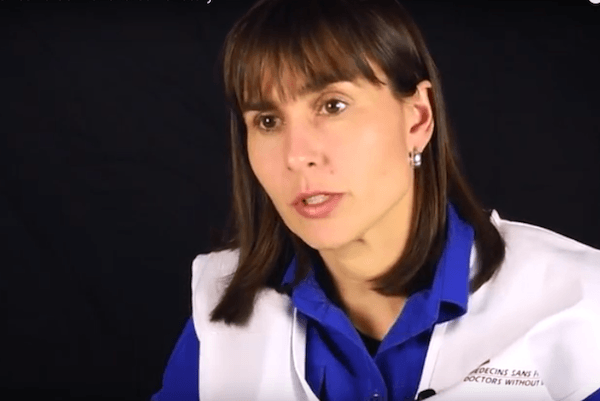MSF spent 11 months on the island, and saw a significant deterioration in mental health, especially as a number of people were rejected from resettlement in the US earlier this year.
They labelled the situation as “beyond desperate” and condemned Nauru’s sudden move to halt the provision of MSF provided mental health care — which saw doctors kicked off the island.
MSF, also known as Doctors Without Borders, says that while many of the refugees on Nauru have experienced trauma during the refugee journey or in their countries of origin, it is the Australian government’s indefinite offshore detention policy that has “destroyed their resilience and shattered all hope that they will one day lead safe, meaningful lives.”
O’Connor said that the mental health conditions they saw amongst the refugees and asylum seekers were depression, anxiety and post traumatic stress disorder, which was leading to significant levels of self harm and suicidal attempts.
She said they saw the same conditions amongst children, including suicidal attempts in children as young as nine. They also saw a condition they are referring to as ‘traumatic withdrawal syndrome’ or ‘resignation syndrome’.
“There were children that I knew, because I was on the island a while, children that would stop and chat to me in settlements or in a shop, and I gradually started to see them deteriorate. They became more depressed, and they withdrew socially,” she said.
“When I went to visit these children at home, they had taken to their bed. They were no longer eating or drinking sufficient amounts to keep themselves alive, many were no longer able to toilet themselves.
“When I tried to talk to them, to these children that previously would talk to me, they would not respond. They would just stare through me. And seeing that level of deterioration in the children was really quite horrific.”
MSF reported 78 cases of attempted suicide, suicidal thoughts or self-harm by refugees.
MSF has also shared video stories from other psychiatrists who spent time on the island, including Carolyne Lima, who spoke emotionally about self-immolation and suicide attempts among children.
“They say very clearly that at this moment, they prefer to dead than be here, and they say, ‘what is the reason to take us out of that boat if we are dead than alive. What is the sense of breathing if we are not alive’. So they are really trying to kill themselves.
“The fact they are not succeeding in these attempts doesn’t mean that it’s not for real, it just means that they are ten and twelve and they don’t know how to kills themselves, actually.”
Speaking at the press conference on Thursday, MSF Australia executive director Paul McPhun said that five years of indefinite limbo had caused a “radical deterioration” in mental health and wellbeing.
“Separating families, holding men, women and children on a remote island indefinitely with no hope of protection except in the case of a medical emergency, is cruel and inhumane,” he said.
He added Australia’s policy of indefinite offshore detention must be stopped immediately.
If you or someone you know is affected by a mental illness you can call Lifeline on 13 11 14, or Beyond Blue on 1300 22 4636.

